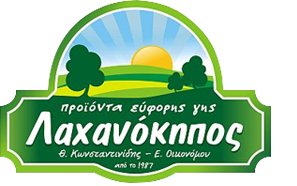|
Mediterranean diet
Lahanokipos | Production - Vegetable Trade Thessaloniki
|
|
Mediterranean diet is a term devised by physiologist Ansel Kis to describe the food model followed by the peoples of the Mediterranean countries included in the Study of the Seven Countries. At the International Conference on Mediterranean Nutrition in 1993 it was decided to consider a healthy, traditional Mediterranean diet and in 1995 a team of scientists from Harvard University created the "Mediterranean Diet Pyramid"
The traditional Mediterranean diet was defined with the following characteristics:
 Άφθονες φυτικές ίνες (φρούτα, λαχανικά, ψωμί/δημητριακά, πατάτες, όσπρια, καρποί). Άφθονες φυτικές ίνες (φρούτα, λαχανικά, ψωμί/δημητριακά, πατάτες, όσπρια, καρποί). Ελάχιστα επεξεργασμένα προϊόντα Ελάχιστα επεξεργασμένα προϊόντα Γαλακτοκομικά προϊόντα (κυρίως τυρί και γιαούρτι) καθημερινά σε μικρές έως μέτριες ποσότητες Γαλακτοκομικά προϊόντα (κυρίως τυρί και γιαούρτι) καθημερινά σε μικρές έως μέτριες ποσότητες Ψάρια και πουλερικά σε μικρές έως μέτριες ποσότητες Ψάρια και πουλερικά σε μικρές έως μέτριες ποσότητες Κόκκινο κρέας 2 φορές το μήνα Κόκκινο κρέας 2 φορές το μήνα Ελαιόλαδο ως κύρια πηγή λιπαρών που περιέχουν μονοακόρεστα λιπαρά οξέα Ελαιόλαδο ως κύρια πηγή λιπαρών που περιέχουν μονοακόρεστα λιπαρά οξέαΗ συγκεκριμένη διατροφική σύνθεση της Μεσογειακής Διατροφής έχει ως αποτέλεσμα αφενός χαμηλή περιεκτικότητα σε κορεσμένα λιπαρά και χοληστερόλη και αφετέρου υψηλή περιεκτικότητα σε υδατάνθρακες και ίνες. Η καθημερινή κατανάλωση ελαιόλαδου συνεπάγεται υψηλή περιεκτικότητα της δίαιτας σε μονοακόρεστα λιπαρά οξέα.
The benefits of the Mediterranean diet
In recent decades, the scientific community has recognized, through a variety of clinical and epidemiological studies, the important role of Mediterranean Diet, both in the prevention and outcome of complex diseases such as cardiovascular diseases. The Mediterranean diet, with its abundant nutrients , Proper meal ratio and plenty of olive oil does not stop being the source of Intervention studies.
Recent results from the Spanish PREDIMED study explain the efficacy of eating a Mediterranean diet to prevent type 2 diabetes in people with a high risk of cardiovascular disease. Specifically, 418 non-diabetic volunteers, aged 55 to 80 years, with more than 2 risk factors for cardiovascular disease, were divided into 3 groups and followed for about 4 years. The first group followed a Mediterranean diet supplemented with virgin olive oil (1 liter per week), the second group followed a Mediterranean diet supplemented with nuts (30 g per day) and the third group followed a low fat diet (control group). After about 4 years of follow-up, it was found that the more faithful the maintenance of the Mediterranean diet was, the smaller the incidence of type 2 diabetes (inversely proportional). In addition, when the results of the Mediterranean diet groups were compared with those of the control group, there was a reduction in the incidence of diabetes of 52%. This study, published in the Diabetes Care Review, concludes that the Mediterranean diet, without calorie restriction, appears to be effective in preventing type 2 diabetes in people with a high risk of cardiovascular disease.
Research on the Mediterranean diet, however, does not stop here. In another European randomized clinical study (EUROLIVE), the researchers found that the polyphenols of olive oil, an essential ingredient in the Mediterranean diet, promote antibody production (OLABS) against the oxidized form of oxidized LDL and that this creation Is enhanced when lipid oxidative damage is increased. This oxidized form of badly oxidized LDL is a molecule with a particularly active role in the formation of atherosclerosis. In contrast, the creation of antibodies (OLAB) by our body against this oxidized form seems to act as a protective. In the above study, 200 healthy male Europeans were consulted, who consumed high, medium and low levels of phenolic ingredients for three weeks. The analysis of the results showed that a) the OLAB concentration of volunteers' blood plasma was inversely proportional to oxidized LDL (p <0.001), b) the higher the phenolic content of the olive oil they consumed, the greater the antibody production OLAB (p <0.023). These studies add to the already established benefits of the Mediterranean diet and remind us of its valuable value to our health and well-being.
|
|
|

Lahanokipos | Production - Vegetable Trade
Agia Paraskevi, Thermi / Thessaloniki
Mobile: 6944711065, 6949203153
|







